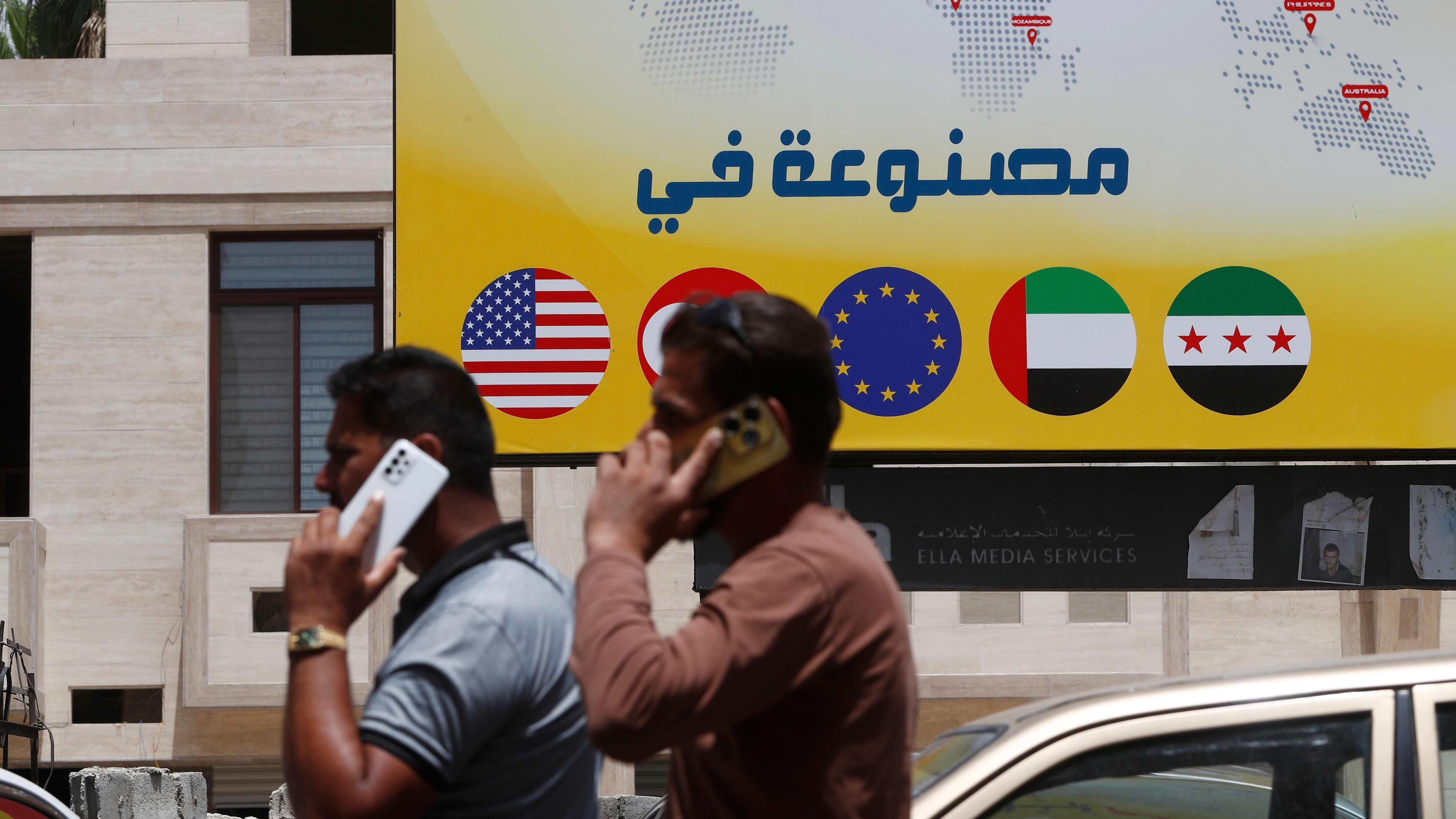
Syrian men speak on their phones on a street in Damascus, Syria, Wednesday, May 14, 2025.
Syrian Foreign Minister Asaad al-Shaibani welcomed a decision by the European Union on Tuesday to lift economic sanctions against his country, calling it “a new historic achievement” for the Syrian people.
“We, together with our people, have achieved a historic victory through the lifting of EU sanctions on Syria,” Shaibani wrote on X.
He thanked EU member states and all parties involved in “this victory.”
Al-Shaibani said the move will strengthen “security, stability and prosperity in Syria,” adding that “Syria deserves a bright future worthy of its people and civilization.”
His comments followed an announcement earlier in the day by EU foreign policy chief Kaja Kallas.
"Today, we took the decision to lift our economic sanctions on Syria," the EU's top diplomat Kaja Kallas posted on X after a meeting of the bloc's foreign ministers in Brussels.
"We want to help the Syrian people rebuild a new, inclusive and peaceful Syria," she said.
The move from the European Union comes after US President Donald Trump announced last week that Washington was lifting its sanctions against Syria.
The country's new rulers have been clamouring for relief from the crushing international punishment imposed after Assad's crackdown on opponents spiralled into civil war.
EU diplomats said the agreement should see the lifting of sanctions cutting Syrian banks off from the global system and freezing central bank assets.
But diplomats said the bloc intended to impose new individual sanctions on those responsible for stirring ethnic tensions, following deadly attacks targeting the Alawite minority.
Other measures targeting the Assad regime and prohibiting the sale of weapons or equipment that could be used to repress civilians are set to remain in place.
The latest move from the EU comes after it took a first step in February of suspending some sanctions on key Syrian economic sectors.
Officials said those measures could be reimposed if Syria's new leaders break promises to respect the rights of minorities and move towards democracy.